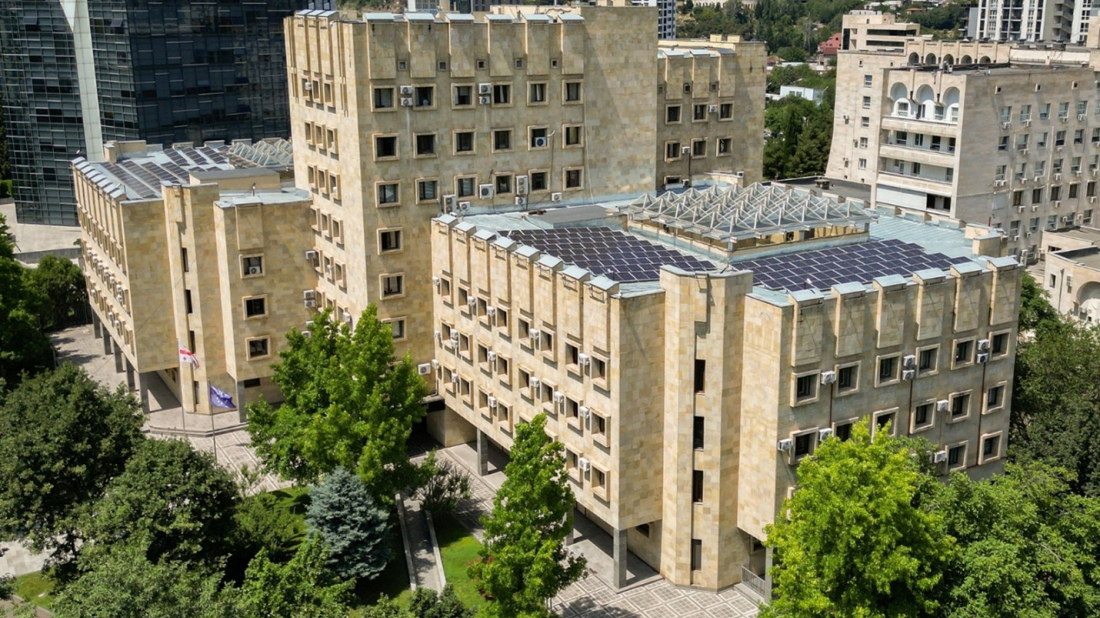Kazakhstan vows to fast-track AZAL crash investigation amid rising diplomatic tensions
Kazakhstan has vowed to speed up its investigation into the Azerbaijan Airlines (AZAL) crash near Aktau, as mounti...

Georgian authorities are currently investigating more than $624 million and €35 million which were laundered through an elaborate criminal scheme that spanned at least two years.
According to the Prosecutor’s office, the discovery which counts as one of the largest cases of financial crime in the country’s history, involved a network that operated between 2022 and 2024, disguising illicit cash flows through a licensed currency exchange point.
It said that foreign currency was being smuggled into Georgia from neighbouring countries, hidden in vehicles to bypass customs. Once collected, the funds were then deposited into banks with falsified paperwork, then reinvested in property, movable assets, and other sectors to give the appearance of legitimacy.
Authorities have arrested one key suspect, seized large sums of cash, and are preparing further asset confiscations. The investigation is ongoing in cooperation with the State Security Service.
The sheer scale of the alleged laundering which is equal to nearly two years of Georgia’s state education budget, exposes the vulnerability of financial systems to organised crime. It also highlights the importance of regulatory oversight in sectors such as currency exchange, where legal businesses can be misused as fronts for illegal activity.
Coinciding with the arrest, the ruling Georgian Dream party has announced sweeping anti-corruption amendments.
Under the proposed law, public officials, political figures, and employees of state enterprises convicted of financial or official crimes would be obliged to submit annual asset declarations for 30 years following their conviction.
Majority leader Irakli Kirtskhalia said the reforms aim to prevent misappropriated wealth from resurfacing in the economy years after sentences are served. He stressed that the government’s goal is to place Georgia among the top three least corrupt countries globally.
While the reforms could close loopholes that allow convicted officials to conceal assets, analysts point to risks. Long-term monitoring might become a powerful tool for transparency—but if applied selectively, it could also be seen as a political weapon in Georgia’s already polarised environment.
With a record-breaking money laundering case under active investigation and new legislation moving through Parliament, Georgia is doubling down on its anti-corruption agenda.
The key test will be whether enforcement remains consistent and impartial, ensuring that both criminal networks and public officials are held to the same standard.
The Kremlin is utilising the recent United States and Israeli military strikes on Iran to validate its ongoing war in Ukraine. Russian officials are pointing to the escalation in the Middle East as evidence that Western nations do not adhere to international rules.
Saudi Arabia’s state oil giant Saudi Aramco closed its Ras Tanura refinery on Monday following an Iranian drone strike, an industry source told Reuters as Tehran retaliated across the Gulf after a U.S.-Israeli attack on Iranian targets over the weekend.
The Middle East crisis intensifies after the deadly attack on the compound of the Supreme Leader of Iran Ali Khamenei on Saturday that killed him, other family members and senior figures. Iran has launched retaliatory strikes on U.S. targets in the region.
U.S. President Donald Trump said the U.S. military has enough stockpiled weapons to fight wars "forever"; in a social media post late on Monday. The remarks came hours before conflict in Iran and the Middle East entered its fourth day.
Türkiye raised its security level for Turkish-flagged vessels in the Strait of Hormuz to Level 3 on Sunday (2 March). The development follows Iranian restrictions on shipping after U.S. and Israeli strikes and confirmation of Supreme Leader Ali Khamenei’s death.
Seven opposition parties in Georgia have formed a coordinated alliance ahead of upcoming elections, saying it aims to challenge the dominance of the ruling Georgian Dream party. The government has dismissed the move as a rebranding of familiar political figures.
Türkiye’s President, Recep Tayyip Erdoğan, has described the ongoing U.S.–Israeli military campaign against Iran as a “clear violation of international law”, in his strongest remarks yet on the escalating regional crisis.
U.S. President Donald Trump said the U.S. military has enough stockpiled weapons to fight wars "forever"; in a social media post late on Monday. The remarks came hours before conflict in Iran and the Middle East entered its fourth day.
Kazakhstan has vowed to speed up its investigation into the Azerbaijan Airlines (AZAL) crash near Aktau, as mounting diplomatic pressure and geopolitical tensions push the disaster further into the international spotlight.
Entrances to Iran's underground and previously bombed uranium-enrichment plant at Natanz have been struck as part of the U.S.-Israeli military attacks on the country, the United Nations nuclear watchdog, the International Atomic Energy Agency (IAEZ) confirmed on Tuesday (3 March).
You can download the AnewZ application from Play Store and the App Store.

What is your opinion on this topic?
Leave the first comment